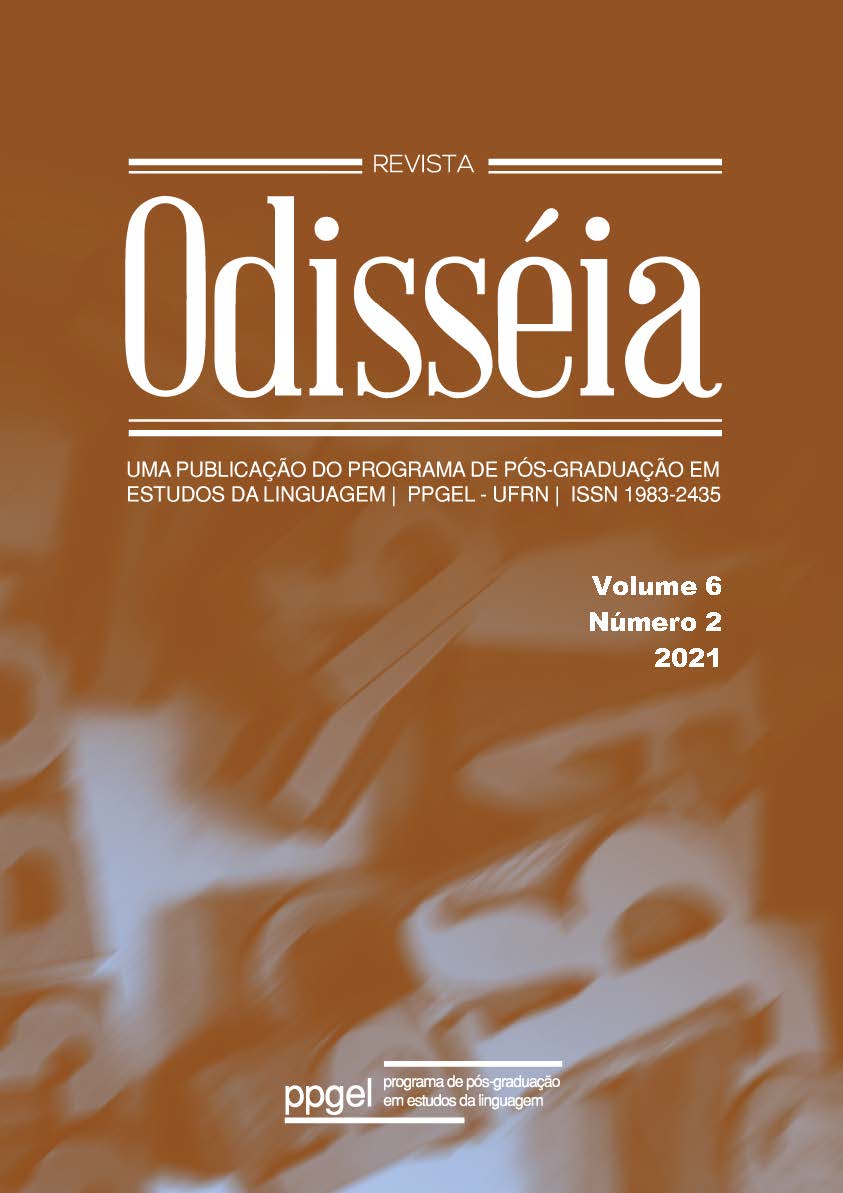Verão no aquário e Fazes-me falta: considerações sobre a escrita em Lygia Fagundes Telles e Inês Pedrosa
DOI :
https://doi.org/10.21680/1983-2435.2021v6n2ID24445Mots-clés :
Linguagem. Ausências. Morte. Verão no aquário. Fazes-me falta.Résumé
Este artigo objetiva dialogar os romances Verão no aquário, de Lygia Fagundes Telles, e Fazes-me falta, de Inês Pedrosa, na perspectiva da linguagem literária. Parte-se da hipótese de que esta categoria apresenta-se como errante e impotente para esclarecer o que diz, constatação que não é vista como problemática, apenas como composição do estilo peculiar das escritoras. Segundo a crítica, estes romances são significativos na consagração de ambas, consideração que se justifica, principalmente, pela irreverência da linguagem neles trabalhada. A análise foi fundamentada em contribuições voltadas ao estudo da literatura contemporânea, em especial, Maurice Blanchot (1997; 1987) e Roland Barthes (1984; 2011). Para compreender as acepções feitas pela crítica, foram consultados, dentre outros, os trabalhos de Diana Navas e Telma Ventura (2018); Sônia Régis (1998). Constatou-se que a linguagem, nestas obras, é entrelaçada à ideia de morte, tema presente nos dois enredos e que comunga com a escritura das autoras.
Téléchargements
Téléchargements
Publié-e
Comment citer
Numéro
Rubrique
Licence

Este trabalho foi licenciado com uma Licença http://creativecommons.org/licenses/by-nc-sa/4.0

















